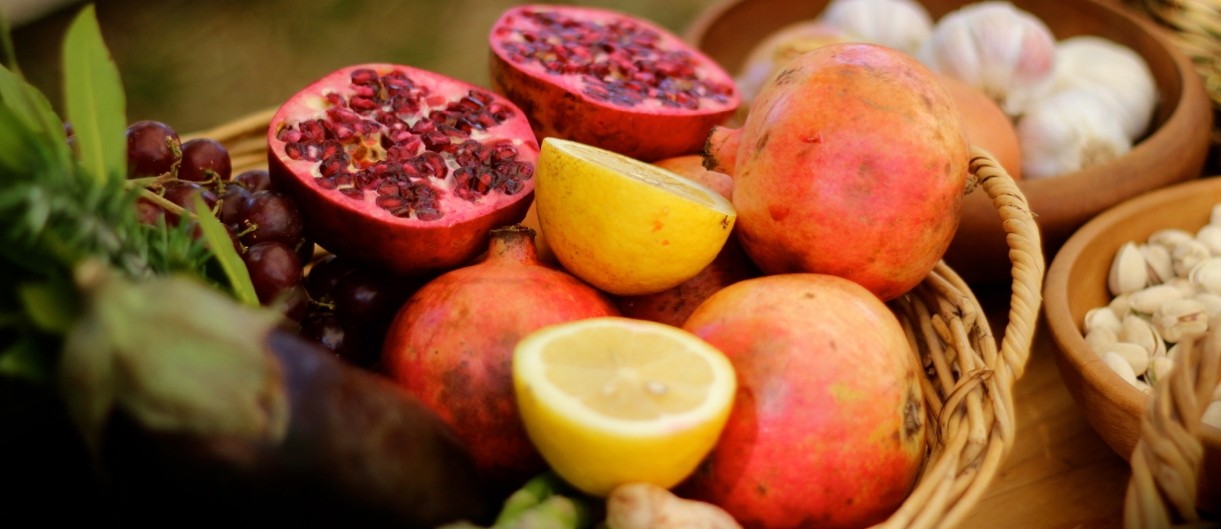What's with all the fuss about gut health?
The term ‘gut health’ has been thrown around a lot lately. Why is your gut so important? Accredited practicing dietitian, Rosalyn D’Angelo explains what all the fuss is about.
Our ‘gut’ or ‘gastrointestinal tract’ starts at the mouth and goes all the way down to our large intestine. It works 24/7 to break down the food we eat in to a form that our body can actually absorb. As well as this, our gut is also responsible for getting rid of anything we don’t need or can’t digest. It is also linked with our nervous system and sends messages to our brain, and if that wasn’t enough, it also produces hormones that affect our appetite.
Long story short, it’s super important, and we are only just starting to scratch the surface and understand all aspects of gut health. The gut contains trillions of different types of microorganisms, mainly bacteria, which collectively make up your ‘gut microbiota’. They help your body digest foods and work alongside your immune system to help protect you from disease. Just like our fingerprints, everyone’s microbiota is slightly different.
The aim is to have a healthy, stable balance, and also a wide variety of gut bacteria. Think of it like a colony of organisms living inside your digestive system, all working together to keep your gut healthy. You need all sorts of good people to make a balanced well-functioning society- teachers, lawyers, doctors, builders, chefs, artistic people, scientific people, nurturing people and forward thinking people. Your gut is the same! And the foods and drinks we consume can make a big difference.
What can make our gut health better?
You might have heard of the term ‘probiotics’. The World Health Organization (WHO) and Food and Agriculture Organization of the United Nations classify probiotics as “Live bacteria that confer health benefits when consumed in adequate amounts’. They do so by increasing the type and number of good bacteria in the gut.
Probiotics are found naturally in some fermented foods. For a food to be considered truly ‘Probiotic’, it needs to contain live bacteria that confer a proven health benefit. We need a lot more human research in this area, but foods that can be considered probiotics are some yoghurts, kimchi, sauerkraut and kefir.
What about probiotic supplements?
There is no clear evidence at this stage to say whether taking a probiotic supplement for general gut health is beneficial if you are already eating a healthy, well-balanced diet. If the probiotic can’t survive the journey through the digestive system to the colon, it can’t technically be called a probiotic as it can’t perform its function and improve the health of the gut. This may be the case for probiotics added to foods like smoothies. Because the probiotic is not in its natural state, we don’t always know how well the probiotic survives or functions. If your diet isn’t where it should be yet, it won’t hurt to take a supplement, in fact it may even help. However a supplement won’t replace a healthy diet- so this is the best place to start.
Prebiotics
Those ‘good’ bacteria in your gut need to eat something! Prebiotics are mainly the non-digestible fibres found in the plant walls (cellulose). Because we can’t digest plant walls, they linger in the gut where they act as food sources for the bacteria in your gut, helping them to flourish. Rich sources of prebiotics include fruit, vegetables, wholegrains, beans, lentils, legumes, nuts and seeds. The added benefit to this fibre is that it can help lower your cholesterol levels, and it keeps you fuller for longer than other foods, assisting with weight management.
What can make our gut health worse?
A poor quality diet that’s high in processed foods, fat, meat, sugar and alcohol and low in fibre can worsen gut health as it can negatively affect the balance of ‘good’ and ‘bad’ bacteria. Some medications, alcohol, smoking, stress, and some medical conditions can also have a detrimental affect.
Top tips for improving your gut health:
Up your fibre intake- eat 2 serves of fruit and 5 serves of veggies each day
Include some prebiotic foods like yoghurt or kimchi
Choose wholegrains, legumes, lentils and beans- add some soup mix in to a soup, add beans and lentils to Bolognese sauces
Limit processed foods and alcohol
Ensure that your red meat intake doesn’t exceed 455g cooked meat each week
Variety is key! Eat a rainbow of coloured fruit and vegetables
Drink plenty of water to keep your body (and gut) hydrated
Gut healthy meal ideas:
Hearty vegetable soup with lentils and legumes
Stewed fruit topped with Greek yoghurt
Poke bowls with fresh veggies, salmon and kimchi
Read more health news




